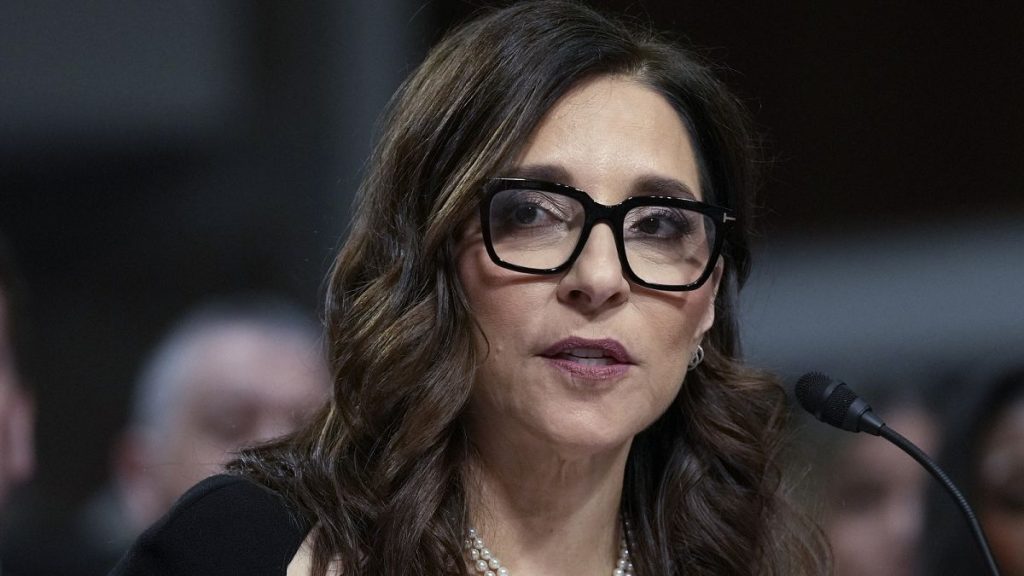Linda Yaccarino, CEO of X (formerly Twitter), delivered a staunch defense of owner Elon Musk at the Consumer Electronics Show (CES) in Las Vegas, addressing controversies surrounding Musk’s online engagements, including his clash with UK Prime Minister Keir Starmer over child grooming gangs and his interaction with the leader of a far-right German political party. Yaccarino framed Musk’s actions, even those deemed provocative, as courageous and visionary, arguing that his platform, X, provided a vital space for crucial conversations, particularly highlighting the issue of child grooming gangs in the UK. She posited that without X, the issue would have remained buried, potentially preventing justice for victims and safeguarding future generations. This defense came amidst a backdrop of mounting criticism of Musk’s online behavior and its potential impact on political discourse.
Yaccarino’s defense of Musk centered on the principle of free speech, emphasizing X as a platform where diverse viewpoints, even those considered controversial, could be aired. She downplayed concerns about Musk’s interactions with political figures, including his scheduled livestream with Alice Weidel, leader of the far-right Alternative for Germany (AfD), characterizing these as simply expressions of different perspectives. She argued that prominent individuals expressing their views was a common occurrence and should not be interpreted as interference in elections. Instead, she redirected the focus back to the child grooming scandal in the UK, reiterating her claim that Musk’s involvement on X had been instrumental in bringing attention to the issue. This strategy of linking controversial actions to a seemingly positive outcome served as the core of her defense.
The context for Yaccarino’s remarks includes a heated exchange between Musk and UK officials, particularly Safeguarding Minister Jess Phillips, whom Musk targeted with personal attacks online. This controversy stemmed from Phillips’ initial rejection of calls for a government inquiry into child grooming gangs. Musk’s subsequent posts, labeling Phillips with derogatory terms, drew condemnation from Prime Minister Starmer, who accused Musk of spreading misinformation and amplifying far-right rhetoric. This incident, coupled with Musk’s endorsement of the AfD and the planned livestream with Weidel, fueled concerns about his influence and potential interference in European politics. Yaccarino’s comments at CES aimed to counter this narrative, framing Musk’s actions as driven by a commitment to free speech and the exposure of important issues.
Yaccarino further extended her defense of Musk’s approach by drawing a parallel with Meta’s recent decision to eliminate fact-checkers. She portrayed this move as validation of X’s community notes system, arguing that both platforms were embracing a more user-driven approach to content moderation. She welcomed Meta’s shift, suggesting it signified a broader recognition of the efficacy of community-based accountability. However, this comparison overlooks the criticisms levelled against X’s community notes, particularly concerns about the visibility of accurate notes regarding election misinformation. By linking X’s approach with Meta’s decision, Yaccarino attempted to present it as a forward-thinking model rather than one susceptible to manipulation.
The controversy surrounding Musk’s online engagements highlights the ongoing debate about the role and responsibility of social media platforms in moderating content and the potential impact of influential figures on political discourse. Musk’s actions, defended by Yaccarino as expressions of free speech and catalysts for important conversations, have been viewed by critics as examples of harmful rhetoric and potential interference in democratic processes. The clash between these opposing perspectives underscores the challenges of navigating the complex landscape of online speech and its implications for public discourse and political stability. The incident also raises questions about the boundaries of free speech and the responsibility of platform owners to prevent the spread of misinformation and harmful content.
The long-term consequences of this controversy remain to be seen. While Yaccarino’s defense sought to frame Musk’s actions in a positive light, the criticism he has faced, both in the UK and across Europe, underscores the potential risks associated with his approach. The incident also emphasizes the growing scrutiny of social media platforms and their role in shaping public discourse, particularly in the lead-up to elections. Whether X’s community notes system proves to be a viable alternative to traditional fact-checking remains to be seen, and the debate about the optimal approach to content moderation is likely to continue. The clash between Musk and European leaders highlights the ongoing tension between the principles of free speech and the need to address the spread of harmful content online.














